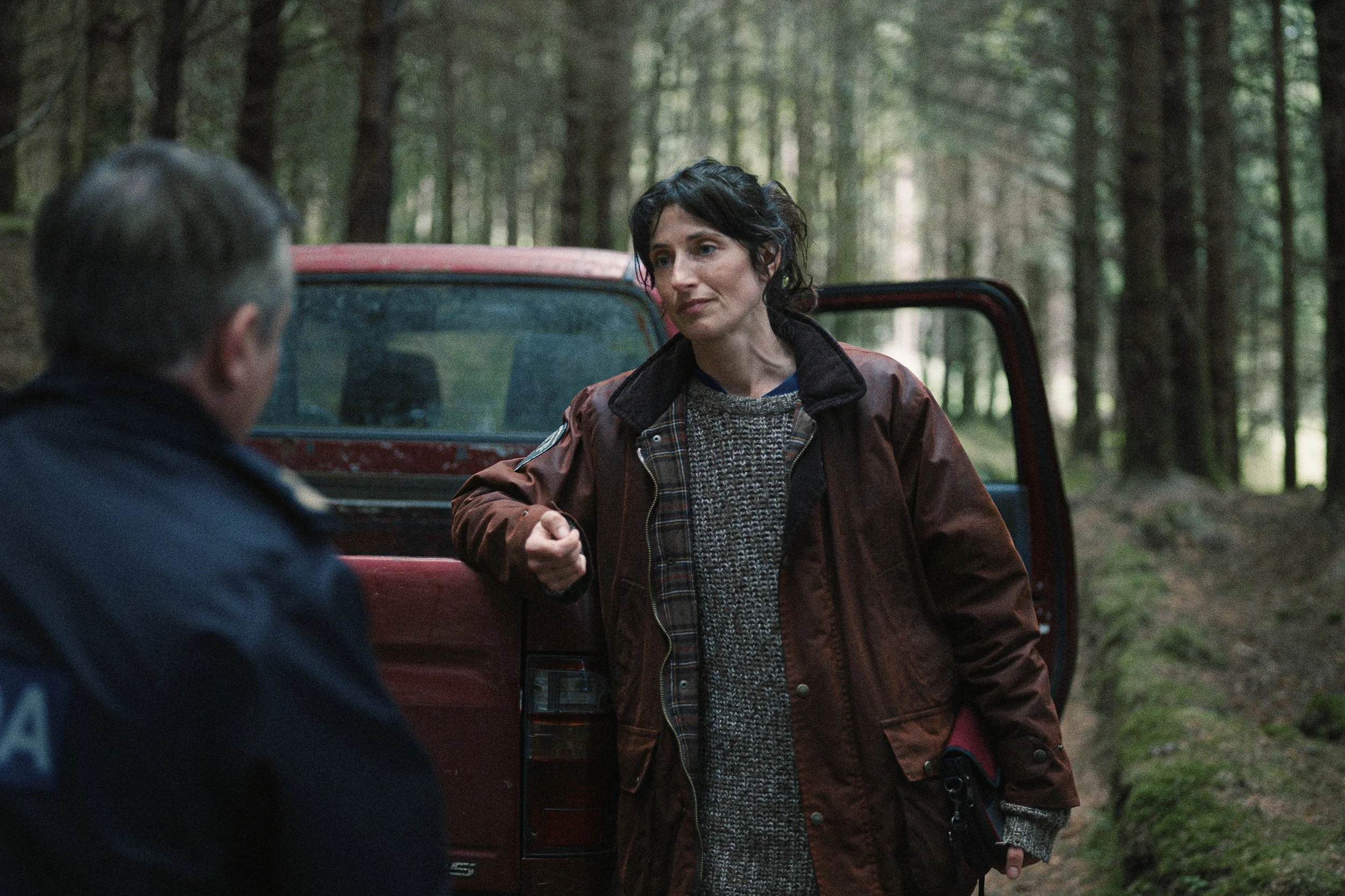TIFF25: “Whitetail” Speaks to Preservation from Within
This review originally published on Film Obsessive.
To grow up near the woods is to be deeply fascinated and terrified by the thickness of a forest that seems to go on forever. You can be alone there, or you can feel like you’re alone even though someone or something is watching you through the dense leaves. Writer/director Nanouk Leopold’s Whitetail, which had its world premiere at the 2025 Toronto International Film Festival, takes place in a forest in southern Ireland, where secrets are kept and, ultimately, exposed.
When Jen (Abby Fitz) was a teenager, she was dating a boy named Oscar (Seán Treacy). The two young lovers would steal away to the woods to escape from the world for a while. The two would have sex, shoot some cans with a gun, and enjoy the freedom the woods offered. One afternoon, however, things took a turn for the worse and the two were irrevocably changed. Now, decades after the fact, Jen (Natasha O’Keeffe) is still in the area and living a secluded life focused on environmental conservation. Oscar (Aaron McCusker) left for years, but has returned for the funeral of his mother. The two have a shared history, one that’s fragmented and frayed, but forced to the surface once again.
courtesy of TIFF
While Jen and Oscar are Whitetail’s two main characters, it’s impossible to ignore the massive role nature plays in the film. It’s more than a setting. These woods are alive, playing as much of an active role as any of the humans involved. Nature does not care about humanity. The pain or joy that occurs within the forest and amongst the trees means nothing. It’s both beautiful and tragic for life-altering events to happen in the wilds. The birds continue to chirp, the grass still grows, and the dead will not be mourned. There’s a resilience in nature that humans share. It’s the ability to push through, even when obstacles are placed in the way, but nature’s ability to endure is often not at the expense of its own well-being.
The first ten minutes of the film could be a short film all their own. It’s an incredibly condensed gut punch of a story that lays the groundwork for the rest of Whitetail. We get to see Jen before a terrible tragedy changes the way she moves about the world. Often with these stoic female characters that Jen becomes, we get a vague reason as to why they’re closed off. Whitetail puts you in her shoes and lulls you to the carefree world of teenage love again. The film makes it so easy to fall into the adventurous world of teenagers exploring the woods. Whitetail also makes the audience realize how quickly the world can shift under your feet and how abruptly the innocence of childhood can end.
courtesy of TIFF
O’Keeffe is the audience’s guide through Whitetail. She is quiet and pensive, but there’s a well of sadness within her. The obsession she has with conservation is more than caring about ecology and the preservation of the natural world. It’s a compulsion to hold her trauma close. It’s as though she believes that if she can save the planet, she can save herself. On a larger scale, that’s true. Humanity can’t endure if there’s no planet to live on, but by throwing herself into this work, she’s taking the path of least resistance for her own life. O’Keeffe plays this marvelously. She’s acting on a razor’s edge, holding it all together and fundamentally falling apart from the weight of what she won’t address.
Whitetail is a slow burn of a drama that doesn’t end in a bright flame as many people would expect. Life moves on in the same way weeds continue to grow over the remnants of what people leave behind. Nature will consume us if we let it, chew us up, spit us out, and use us for fertilizer. Whitetail is a cautionary tale about how preservation must start from within before we’re able to share it with the world around us.
support your local film critic!
~
support your local film critic! ~
Beyond the Cinerama Dome is run by one perpetually tired film critic
and her anxious emotional support chihuahua named Frankie.
Your kind donation means Frankie doesn’t need to get a job…yet.
Follow me on BlueSky, Instagram, Letterboxd, YouTube, & Facebook. Check out Movies with My Dad, a new podcast recorded on the car ride home from the movies.


